|
For the past couple years, I have had a word to focus on pertaining to my spiritual life (which is really all of life). 2014 was "breathe." 2015 was "praise." 2016 is "pray."
I was kind of scared by that when I finally acknowledged (after hemming and hawing about) that was indeed my word for the new year. That might surprise you, because I often refer to the subject, and I even created a prayer closet. The truth is that I love to read about prayer, to study it, to create spaces for it, but actually praying is another thing. In all of life, I tend to theorize, envision, research, analyze, much more than Do Actual Things (unless you count moving piles of books and papers around). It's who I am (insert infomercial for The Myers-Briggs Type Indicator (MBTI) - I'm a very part-time consultant). But it's not all that I am. It's like being right handed - I prefer to use that hand, but it's not like my left hand just hangs at my side. The Christian life - spiritual formation, as we reflective types are fond of calling it - is about becoming ambidextrous. ...So while I do pray daily and throughout the day (sometimes in just two word sentences), I spend much more time (even in my prayer closet) reading (the Bible as well as books on Christian living / spiritual formation) and thinking than I do in conversation with God. There are many ways to pray, and I even believe that what I do (immersing myself in learning about it) is a form of prayer, but I want to mute the volume in my brain, so to speak, to listen for that still, small voice, which is another way God talks to those who call on Him, in addition to through his Word, the Bible. I also want to intercede more for others, as well as pray through more of my own stuff, and offer praise/thanksgiving. There are lots of prayer "formulas" - I'm familiar with most of them - and I may start trying out some of them, because they can be useful tools for staying focused...but most of all, I want to make room for God to draw me closer to him through more dialogue. That's the goal of the Christian life (and life in general) - to be intimate with our Creator. When I finally realized my new word was "pray," it was like putting together the pieces of a puzzle. My previous words - breathe and praise - are both forms of prayer. Wait...you say...breathing is praying? Well, yes, in a couple ways. First of all, if I stop and take a deep breath, or even just a normal one, I am waiting. I am quiet as I concentrate on breathing...not in a new age-y way, just in a this is how humans relax kind of way. Secondly, there are actually breath prayers, i.e. talking to God while you inhale and/or exhale. I haven't explored that too much (and yes, it can get all mystical, but it can also be more physiological), but, and this leads into my word for the past year, I love the worship song that says "breathing in your grace, breathing out your praise." Breathe in: Lord, I need your grace. Breathe out: Lord, praise you for being with me. And so on… Another way it fit is that recently, I have had the recurring word, "path." It came up a lot in my reading of Psalms and Proverbs. I especially like "ponder the path of wisdom." The path is often referred to as leading a righteous life, following God's design for human flourishing. One of my favorite books is Pilgrim's Progress, which I am going to be rereading this year. I'll come back to the word path, but the other word is another analogy, which is house. I have always been captivated by the little booklet My Heart Christ's Home, and I'm actually going to be using a study guide with that in our church's women's Sunday School starting up in a few weeks. I had an epiphany when the word "pray" came to me, because I realized that it encompassed both metaphors - the path is practicing the presence of God (praying constantly as the Bible tells us to do, so being mindful of Jesus while we are doing life) and the house is quiet time, the portion of the day we set aside to be alone with the Lord - reading his Word, meditating on it, and praying. I think the path can tend to come a little more naturally to extraverts, whereas introverts attract to the house. But we both need both.
0 Comments
Remember that prayer closet I made last spring? Like many other things, it hadn't been a consistent part of my day, but that changed over Advent. Something about the newness of the church year that invites me in, as if beginning an adventure (pun not intended). Every year I am more eager to take the familiar journey through the life of Christ and see where God leads me this time.
Before I was introduced to all things liturgical - so basically the first 35 years of my life - I found a similar kind of grounding when I read the Bible. Revisiting the same passages I had read many times before, they would always spoke something new to me, even the times (more than I care to admit) when I just flipped it open and turned to a random Scripture. Randomness, though, turned to staleness over the years. There was no rhyme or reason to my reading of the Word, except in community settings (church, small group) where we might be going through a particular book of the Bible or a topical study. So when the intense child bearing season hit, I abandoned my lifelong practice - which had become more of an obligation - of reading the Bible every day. I felt both free and fearful. I believed that my desire for the Word would return to me but I also felt some guilt and fear. I began to experience a sort of quiet spiritual renewal as I learned more about the seasons of the church year. I was drawn to the beauty and mystery of the symbolism and patterns. When we came to our church four years ago this spring - the only evangelical liturgical church in our area - it was like finding the final piece of the puzzle I didn't know I had been solving. Since that time, I have used a lot of church year resources to guide my time alone with God, but I have yet to follow a consistent Bible reading plan. Last Advent, I planned to start the Daily Office from the Book of Common Prayer (Anglican but used by PCA churches like ours), which would go on for the next two years. I didn't do it, and though I could have picked it up at any point, I was resistant. I came up with other creative reading schemes which I never implemented. I had amassed a number of books (which I will list in this post) that offer various plans for daily Scripture reading connected with the liturgical year, but despite that tie-in, they all felt disjointed to me. A funny thing happened to me when we began homeschooling five years ago (this month). I became completely obsessed with chronological order. You see where this is going. Well, it's not exactly novel to begin in Genesis in January with the goal of finishing Revelation at the end of the year, but I didn't want to read the Bible straight through - I wanted to read it in order of history. So a year ago at this time, I printed out a plan for doing that and I got started, but I found myself slogging through Genesis and Job, scratching my head at things I had read all my life, but which now suddenly didn't make sense to me. That kind of "I need to go to seminary" angst was just too much for me to handle while having a marriage, raising kids, homeschooling, managing our finances, etc. So I dropped my Bible reading...again. I decided to give up my chronological OCD and just start year two of the Daily Office beginning in Advent. When November rolled around, I started having doubts - as much as I love the liturgical year, the idea of reading in three or four different parts of the Bible simultaneously, not chronologically, and not even whole books at a time (well, sort of, but with sections skipped) just felt too choppy to me. On the other hand, reading the whole Bible in one year didn't appeal to me either. I also didn't want to totally drop the liturgical connection. During Advent, I decided to just do the readings that correlated with the season, and (as usual) wait until January to start something more comprehensive. In the process, I realized I really liked meditating on the Sunday passages from the Revised Common Lectionary (RCL) throughout the week. If I could do that and also read through the Bible chronologically, that would be the best of both worlds...so that's what I decided to do. I would be consistent but not a legalist. I would vary my spiritual diet by making it a buffet, but with the same menu for me to pick and choose from each day. Yes, I have finally arrived at the point of this post (kind of like how long it took me to get here in life!). So when I enter my prayer closet every day (the goal but not the rule) at the start of my kids' room/rest time, with my cup of tea, I can either get studious and pick up where I left off in my chronological Bible reading (with commentaries to help) or opt for a more reflective time and meditate on one of the brief passages from the RCL...or even do a little of each. Here's what's on the books section of the menu (only the first two are new purchases - I've collected the other Bibles over the years), starting with the "study" aspect: The Daily Bible It's designed to be read in one year, but I am reading it at my own pace (just ignoring the dates). I chose this particular chronological Bible because it's the highest rated and I liked that it merges all four gospels into one narrative. The editor, however, is staunchly anti-Calvinist, so when I read his devotional commentary (which I'm mostly skipping), I keep that in mind. Archaeological Study Bible "Articles (520) covering five main categories: Archaeological Sites, Cultural and Historical Notes, Ancient Peoples and Lands, the Reliability of the Bible, and Ancient Texts and Artifacts" This resource provides historical and cultural context (the world scene), as well as some apologetics, which especially helps with some of the stickier parts of the Old Testament. Homeschooling and a "larger story" (is there a theological term for this besides "gospel centered"?) theology have turned me into a history nut. (Finally finishing this post 2.5 weeks after I started it, so I'm not taking the time to put in the other links) Essential Evangelical Parallel Bible (ESV, NKJV, NLT, The Message) This one is especially good for meditation on a verse or passage. While one word or phrasing may not jump out at me in one translation, it may in another. It helps to create an overall impression of the chapter by reading it repeatedly in the different versions. And it's useful for clarity/understanding. I wish it had the NASB or NIV instead of The Message. ESV Collection (went a little crazy when that translation first came out!) ESV Study Bible - the best of the three Reformation Study Bible - hit or miss Literary Study Bible - ironically, this is my least favorite Other Bibles (not listing them all because that would be embarrassing) Orthodox Study Bible - love the metaphorical interpretations, patterns, symbolism in the commentary KJV Devotional Bible - for when I want to hear it in the King's English and maybe get a profound quote Mosaic Bible (NLT) - this comes more into play in the next section, but basically it takes about passages from all three years of the RCL, creating a theme for each week, with artwork, prayers and devotions (that part is the front of the Bible, while the Bible itself is in the back - it's nice because they put page numbers next to the scriptures to look up). ...Now for the more "meditative" resources... Revised Common Lectionary (RCL) Every week there is a passage from the Old Testament, a Psalm, and two scriptures in the New Testament. I don't usually get to all them each week, and since I'm in the Old Testament in my (chronological) Bible reading, I generally choose the psalm and NT readings. To meditate on it, I may use Lectio Divina (doesn't come naturally to me but I keep trying) or use one or more of the following books (all but Living the Lectionary have a daily Bible reading plan and other resources, but I mostly just use the RCL related material): Mosaic Bible (see description above) The Bible Through The Seasons by Nicholas Connolly Living the Lectionary - Year A by Geoff Wood A Guide to Prayer for Ministers and Other Servants (Upper Room) More Liturgical Resources Bread and The Wine: Readings for Lent and Easter (Orbis Press) Watch for the Light: Readings for Advent and Christmas (Orbis Press) Eternal Seasons: A Liturgical Journey with Henri M. Nouwen Living the Christian Year by Bobby Gross The Liturgical Year by Joan Chittser ...then there is the "theme" for the year, which I will share about in a separate post, and that has its own books, but I'll just give you a taste of it: God as shepherd and as Lamb of God. Other reflective type books I'm reading this year so far Soul Feast by Marjorie Thompson The Celtic Way of Prayer by Esther De Waal Soul searching type books I'm also reading Inside Out by Larry Crabb - read this back in my early 20s, and it was profound, so I'm revisiting it Storyline - doing this workbook style "narrative of my life" with my church community group There you have it - my spiritual menu for 2014, subject to seasonal change (sorry, I couldn't resist). I can tell you I got off to a good start and then hit the 20 minute...er, two week lull. So I - gasp - haven't been in my prayer closet in a week in a half! The good news is that there is no pressure. God is not in a rush, so why should I be? He is always with me whether I'm in my prayer closet or not. I am growing whether I read any or all of the above good stuff every day or not for a few weeks. But I do notice the difference when I take that time out. I crave it. I get kind of cranky without it. Over time, that does cause problems. So there's no deadline on any of the above, but there are many good reasons to race to my father's arms and sit awhile in His presence, feasting on His goodness. (Note: I really did eat the food in the picture, and it was all very good. My mom and I went to lunch at Park 121 in Sonoma. If you're ever in Wine Country, you should try it. ) Rather than passively reflecting back on the past year, I'm going to spend the coming year traveling through the last decade and then some, all the way to the founding of my family. Before I explain how my time machine will work, here's a little background:
I got married 12+ years ago, pregnant a month later, and then over the next five years, had three children, moved to five different houses, and relocated our business twice. A little over two years after we finally settled down and stopped having kids, we unexpectedly started homeschooling. That was five years ago this month. Lots of other things happened during that time, but guess what didn't happen? Filing. As in papers didn't get sorted or purged. They piled up and got put into boxes. The only organization to those boxes is two categories: 1) the children's artwork 2) everything else. These boxes currently line our upstairs hallway. Partly because we don't have a garage and partly because I'm delusional - I have continued believing that if they're visible, I will deal with them. Instead, the collection keeps relocating, and on average, a new box is added to it every year (in each of the two categories). I admit to having hoarding on one side of my family. Thankfully, there are minimalists on the other side. So I tend to collect papers and books, while frequently purging other stuff. In fairness to myself, I am continually giving away books, but new (used) ones seem to constantly replace them. So it's the papers that are the bane of my existence. And after that, it's the digital files, namely the visual souvenirs of our life stored in iPhoto, which also go unsorted, and therefore unprinted. Back to the future...er, present, and how that relates to the past. Enter the phrase "reflect and project." I am a future oriented person and an idealist. Which has led to more delusions. Like believing that there's a pot of gold at the end of my boxes. That when I finally have discarded 80% of what's in them and organized the remainder, I can then begin to fully live. Order will bring me peace, out of which will flow creativity and harmony. It's actually rather similar to how many view a new year - as the opportunity for a clean slate. That if we can just put the past behind us and head out on the right path, it will lead us to the self and the life we've always dreamed of. Well, I've decided that united, the above delusions can actually divide and conquer. To deconstruct my idol of idealism, I must deconstruct my piles. I'm calling it Reflect and Project. During one hour of the kids' afternoon rest time, I will alternate Reflect days with Project days (hereafter referred to as RD & PD). On RDs, I will sort and file one box (when I get through all of them, I will move on to organizing digital files). On PDs, I will create - write, make art, or work on my MMTIC certification. Reflect signifies both processing through the memories resurrected through finding old pieces of my life and the idea of reflecting God's image through implementing order. Project means both its noun form, as in creative project, and its verb form - projecting into the future, as in goal setting based on future vision. ...So an hour a day (five days a week) is devoted to the past and the future, which means I hope to be living in the present most of the other 23 hours a day. And how do I intend to do that? Well, I've got another hour a day goal, but this one is a limit. On my internet activity. That's right - one hour a day for reading articles and interacting on social media (doesn't include productivity stuff like renewing library books, banking, ordering household goods, etc.). I have a timer app on my browser that shows me how long I've been browsing and it's broken down into websites, so I can see the time spent on each one. The way that I'm hoping to accomplish this - gulp - is by giving myself that hour when the kids have their screen time, since that's their limit as well. That both keeps me accountable and ensures that the computer doesn't divert my attention from the kids. It will stay off until that hour, and since I rarely text and don't like typing on my mobile devices, I will just use them for checking email, writing brief responses when needed, and doing the "work" stuff I listed earlier. Another reason for the limitation on my internet usage is because I really want to return to writing on a consistent basis. I had hoped to begin that last spring, but apparently I wasn't ready. So I'm planning to purchase a nifty word processor type keyboard which can send data to the computer. We bought our 11 year-old an electronic typewriter last year, which she loves, but the correction feature conked out, so she and I are going to both love using this new writing instrument. My goal is to blog once a week and to begin working on outlines for some book ideas I've been pondering. Before I go on with my other goals, I should back up a bit to the theme that ties it all together. It actually relates to my previous post. Just as the the Sunday morning church service models a pattern for worship during the week, our days have a liturgy, guided by our priorities. We can think of Sundays as the feasts of the church year, and the rest of the week as ordinary time. It's easy to lose our spiritual focus during those warm, lazy days of summer and hectic weeks of fall when we're not following a pattern of seasonal worship. So, too can we drift from what really matters as we go about the business of our daily, routine lives. To build a template (so to speak) of hourly, daily, weekly, and monthly living that adds up to a purposeful year, which year upon year creates a meaningful life, the foundation can only be one thing: It's what Jesus said was the greatest command: Love God with all your heart, mind, soul, and strength. So "my" time must be based on activities that bring every part of me into worship (enjoying God and glorifying Him) - my intellect, my emotions, my body, and my spirit. When we are loving God (which we can only do by receiving his love), we can follow what Jesus said was the next greatest command: Love others as yourself. I talked about a couple of the major ways I intend to love God with my mind in 2014 - there are more of them, as well as goals for my heart, body, and spirit (not that they're all neatly compartmentalized like that) that I will share in my next post... Upon Advent Eve...
Life is a liturgy. We follow a pattern of worship not just on Sunday mornings and through the church year, but in our seven day week - in each day and each hour. We need structure and spontaneity, freedom and discipline, planned time and blank spaces. The liturgy of our lives should be purposeful and flexible - day by day, moment by moment. If we aren't intentional about ordering our time, then our pattern of worship (which is what every second of our lives is) will not be consistently meaningful or guiding us to grow. Repeated thoughts and actions are what make us who we are, so liturgy forms us. It's soil that roots us - do we want to be rooted in this earth or in Christ's kingdom? It is the rhythm of our lives - do we want to dance to the music of the world or the song of our Savior? I want to follow the Son, flourishing in the light, as I joyfully move in worship of my Creator. When I was a freshman at Westmont College (the only year I would spend there), second semester I found myself in the little white chapel next to the pond almost every night (even though it was quite a hike from my dorm), and at other times as well. I was homesick (okay, lovesick, too - pining for a good friend that I hoped would become more - he didn't), lonely, and grieving the absence of my roommate (and kindred spirit) who had left after our first semester (to be with the boyfriend she thought she would marry - she didn't). I felt such an aching that I longed for God to soothe. I didn't want to be where I was, but I had to for a few more months, so I sought solace in that prayer chapel, a place free of distractions, quiet and peaceful, where I could be alone with my Creator and Savior. It had a prayer notebook where chapel comers could write to God, which is what I did. And I read what others wrote. In fact, I even made some friends that way, because we sometimes wrote encouraging responses, thus beginning a dialogue. But my main purpose for going to the prayer chapel was to seek God, to be consoled by his presence, and to hear him speak life to me through his Word. I also liked the security in the ritual of "escaping" to this private place. I knew I could go there at any time and that I would be refreshed. That I had a secret space to pour out my heart and to come undone with no one but God watching, and holding me next to his heart, even if I couldn't always feel that with my emotions. I would come away with that peace that passes all understanding, which Jesus promised his followers. I might be romanticizing it a bit, but whatever happened during that season of my life, I always remember it as the time when I experienced the deepest intimacy with God. When I left Westmont, I sorely missed that sacred place. The heartache of unrequited love (actually more of a crush but I still felt devastatingly disappointed), the confusion of navigating my educational and career path, and many more challenging circumstances made me pine this time not for a guy or even a friend, but for a special meeting place with God. Anytime I would go on a retreat, if there was a place of prayer - be it a chapel or garden - I would gravitate there. I even started a flickr group specifically for people to post pictures of such small sacred spaces. I made up my mind that one day when I was married and had my own home, my husband would build a prayer chapel in the backyard. Fast forward twenty years from my twenty year-old self, and now this forty year-old has finally entered the promised land. It doesn't quite look the way I imagined. It's not even a building, but then again, I have no backyard to put one in. And no one built it for me - it started with a simple thought I had one day while freshening up in the bathroom (funny how my best ideas often originate there). Our closet is attached to the master bath, so I began thinking...wouldn't it be nice if instead of using this tiny room for clothing storage, I turned it into a little spa where I could give people facials? Then I remembered that I wasn't an aesthetician but a homeschooling mom who couldn't even wash her own face on a regular basis, let alone provide pampering to others. Another idea emerged. It was true that if I moved the clothes out, the approximate four foot by (just under ) six foot closet could actually be converted to a room. And if not an actual spa, wouldn't it be nice to have a restful room, a sanctuary of sorts? Thus was began the project of repurposing our master bedroom closet into a prayer closet (alternate names: upper room, secret place, sabbath chamber, sacred space, rest spot, quiet nook, hidden sanctuary). Once everything was cleared out (I moved our clothes into the kids' closets - we may eventually get a wardrobe, in which case this idea will have birthed two magical places!), it was just a question of what to put in it. When I thought about seating, I kept picturing a moon chair. That ended up being the one extravagance of our humble prayer closet, but it was totally worth the splurge, as it has turned out to be exactly the right chair - I feel hugged whenever I sit in it! After taking one child at a time into the prayer closet, I realized it was a space where two or less could gather, so I wanted comfy, inviting seating for a child as well. That turned out to be a makeshift "lounger" I created out of throw pillows and a comforter (our winter one right now). When I'm alone (which is most common), it serves as a foot rest. I didn't want to clutter up the place with stuff, and it's tight quarters, so I decided on one small, narrow bookshelf we already had. The shelves are for the Bible, my journal, and books to aid in prayer and worship. I started with just the basics, so as not overcomplicate things, but gradually I will add others we have that are helpful for practicing liturgy, sabbath, and the contemplative life. The top of the bookshelf is mainly for the oil lamp, which allows me to adjust the brightness, unlike the large overhead light. Its only drawbacks are a faint odor and that it gives off a fair amount of heat, especially with the door closed (I sometimes leave it ajar) and if I have it turned up, so I also bought an aromatherapy diffuser plug-in halogen nightlight that has a dimmer switch. I put a few drops of essential oil - usually lavender - in the glass dish and its fragrance fills the room. I also keep some strongly scented candles on the overhead shelf (where I store memorabilia - pictures, journals, etc.), so that the room always has a distinct, gently floral aroma. Sometimes when I come upstairs to go to the bathroom in the middle of our school day, I'll splash water on my face, a spritz of rosewater toner, and then open the prayer closet door, inhale the sweetness, reminding me that in a little while I'll be able to retreat here. Just a glimpse of the room and a breath of its scent is soothing and calming. Walls. Not the emotional kind. I'm talking white space. I knew I wanted imagery to evoke beauty and serenity in this special space, so I finally put to good use those old calendar pages I had saved - of Greece, the Mediterranean, whimsical garden scenes, waterfalls, Scriptures - and put them up, but not too too many, mind you. It's kind of funny because we've lived in our house seven years and I've still not hung our pictures on the walls! Another thing about the lighting and the windowless space that occurred to me is that it's similar to what it would have been like it the catacombs, those underground passageways in Rome where the early church met in secret to worship (we were just studying that in our homeschool history). Ironic that their light shone brighter in those dark caves than out in the sun where the worship of of Christ was forbidden. For the past year, my husband and I have been reading books about Sabbath keeping, and we've been trying to practice that in our family. Keeping the sabbath is a tangible way of seeking the rest and peace of God. By setting aside one day each week to cease from labor, consumerism, social media, etc., and to actively pursue the things of the spirit - in body, mind, and heart - it trains and empowers us to live that way in the midst of whatever pressures might surround us during the week. I had the epiphany that this prayer closet symbolizes, and actually is a vehicle for that sabbath rest. It's a tangible expression of stopping and breathing and focusing on what really matters, and giving all my cares over to Jesus, and receiving his love, grace, truth, and whatever "word" he might speak to me for encouragement and growth. A place. A day. These are actual solid tools, props if you will, to take all our good intentions and actually apply them. Illuminating the candles to start the sabbath. Lighting the oil lamp to begin a "quiet time." Saying blessings over the bread and the wine to remind ourselves of why we're at the Lord's Table and what we're entering into. Opening the Word to feast on God's goodness as I come to him alone, hungry and thirsty. These spaces, these ceremonies, these objects - they are examples of how our senses can be a gateway into what we cannot physically touch or taste or smell or hear or see. Liturgy - patterns that are repeated - engage all parts of who God made us. Through repetition, we go deeper and deeper into the knowledge of our Lord, becoming more intimate with him, just as our routines and traditions build closeness and strengthen the bonds in families - between husband and wife, between parents and children. I'm only just beginning to use the prayer closet, and not nearly as often or as consistently as I want to, but already it has affected me deeply, and not just me. I have had very special times in it with each of my children. Quiet cuddling. Heart to heart talks. Prayerful problem solving. And each of them feels special when they get their alone time in it with me. Even just a few minutes, because usually that's all it is. Our middle child (age 8) set up her own prayer space underneath her desk! I nearly cried when she showed me. It brought home the truth that we lead by example more than words. One last thing - for now - about this special space. I find that spending private time with God enhances the my experience of him in community. When I come to church on Sunday morning, the worship is that much sweeter when I have prepared my heart for it...or rather, God has. It also helps fill me with his grace and love, so that I have more of that to give to others. I'm not just in church desperate to be ministered to, but instead, I can minister from a full heart. Admittedly, I'm not totally there yet, but just like having a place for church helps motivate us to gather with the Body of Christ, so does the presence of a prayer closet invite me to come and meet with my Lord.
So since I've failed to have a consistent Bible reading plan for...oh, a number of years...I had hoped to try afresh with the start of the church year, but it didn't happen until the advent of Lent (pun intended), at which point I began following the daily office of the Book of Common Prayer, which takes you through the Bible in two years in a sequential fashion - not in order or chronologically, but through three books of the Bible at a time with each day having a passage from the Old Testament, the Gospels, and an Epistle. It also has several psalms (think it takes you through them twice). Thematically, the readings are patterned after the seasons of the liturgical calendar. The idea is to read the Word morning, noon, and night, but I usually just do it in the mid-afternoon when my children are having quiet time in their rooms, and if I miss that, then right before I go to sleep, or if I miss that, then two days' worth at once (which is what's happened this week). I haven't yet worked in the psalms, but I'm hoping to read one in the morning and one at night.
Today I read in Deuteronomy and Hebrews about belief vs. unbelief (God's faithless and unfaithful chosen people) , and then Jesus' words in John 3 about baptism and spiritual rebirth...fast forward to tonight when I read The Princess and the Goblin by George MacDonald (C.S. Lewis' favorite author) to my daughters, the chapter was all about belief /unbelief - including the truth that even seeing isn't always believing, and it used the imagery of baptism - the princess submersed in a a magical bath that cleanses and renews her, inducing a peaceful sleep. As we were discussing the Christian symbolism (really the first time it's been obvious and we're pretty deep into the book) of believing the gospel, dying to our sinful self, and becoming born again, which baptism represents, I suddenly realized it was all so evident to me because I had just read it in the Bible! Yet another divine serendipity... So in the three days since I began fasting from alcohol, white sugar & flour, I've already had my ups and downs...
Staving off the cravings: -On Wednesday night, while shopping at Trader Joe's, I couldn't put sugar in the sample coffee. I even asked if they could give me honey, but no, they didn't have any open, so I only had one small cup instead of my usual two, which was probably better or I might have stayed up even later - I've been on a night owl streak since then. -We had Chinese take-out for our Valentine's dinner and I had to forego the chow mein & sweet n sour chicken, as well as what were described as sushi rolls, but turned out to be salmon and avocado deep fried in spring roll wrappers. I also couldn't have the fortune cookies, but that wasn't really a big deal. -Tonight is book club - can't have wine or chocolate or whatever other sweet treats might be served. -Pretzels somehow mysteriously entered the house (husband somehow acquired them) - I immediately hid them high in the pantry. -At TJ's, I bought honey roasted peanuts and their new cheese rocket crackers for the kids, who have been snacking on them the last two days. -I've felt like having a Jolly Rancher a few times, just to have something sweet in my mouth. -The It's Its we were too full to eat on Fat Tuesday have been staring at me every time I open the freezer. Now for the delicious bits: -I discovered two new foods at Trader Joe's that I can eat, which are quite tasty and have very few ingredients: Dark Chocolate Honey Mints (honey, chocolate liqueur, oil of peppermint) and Whole Wheat Tuscan Pane Bread (whole wheat flour, water, sea salt, yeast). -The above means I can still enjoy my favorite snack of toast with coconut oil, honey, and cinnamon. -I had one of my favorite Chinese dishes - lettuce cups - and my husband gave me his after we discovered the sushi rolls were actually spring rolls, so I got to have two of them. I also had rice with shrimp, which I realized afterwards probably had sugar in the sauce - same thing for the bell peppers I ate out of the sweet and sour chicken. I was so focused on breading than I forgot about sweetness. -I can still eat cheese, my favorite food! -I'm having more fruit and juice (100%) but not overdoing it. -Lox, cured meats, eggs, peanut butter, nuts, etc., are more enticing to me than carby stuff. So for Lent this year, I'm giving up alcohol, white sugar, and white flour...except on Sundays...which my dear orthodox friend thinks is cheating. I told her and I'll tell you (in case you don't already know - I didn't, being newish to all things liturgical) that in the Catholic and Protestant traditions, there are actually 46 days of Lent - 40 days of fasting and six Sundays, which are feast days, because they represent Resurrection Day, so they are thought of as little Easters. When I've fasted from things before (food or the internet usually), it's always been for a whole season, so that's made me either more timid in my fasting (i.e. giving up less hard things) or I've failed (tried to go gluten-free last Lent, lasted two weeks). Getting the seventh day reprieve feels doable, and if it goes well, it may even extend past this season, becoming a way of life, because it's sustainable.
Besides the Sunday exemption, I am creating another modification - let me pause for a brief aside: none of this is mentioned, let alone mandated in Scripture - it's all manmade tradition, so it should especially be bathed in grace, without any hint of legalism. The point of following the church year and using these kinds of liturgies is to draw us closer to Jesus, to help us grow spiritually, and to be more like Him. It's not about shoulds and oughts and rules and regulations - that was the old covenant...so it's kind of ironic what I'm going to say next... In recent months, we've been studying the fourth commandment, to honor the sabbath and keep it holy. My husband and I have been reading books on the subject and trying to implement sabbath keeping. We decided to begin our sabbath on Saturday nights and conclude them on Sunday nights. There is an opening ceremony in which we light candles and say blessings over the bread and the fruit of the vine and the children and each other (our sabbath table is pictured above). So...if Sundays are the exemption days to our fasting, that would mean no challah (unless I make it whole grain) and no wine (unless it's grape juice), so my idea is that to make sabbath keeping and Lent work together, "Sunday" will actually be the duration of our sabbath, so Saturday night to Sunday night, meaning we can have wine, bread, sweets, etc. from Saturday dinner until Sunday dinner (not including it). In addition to the fasting and feasting of this Lenten season, I want to add something to this time, to make the fasting meaningful by replacing those comfort foods with soul food. And not just to feed myself, but others. The way I've always done that best is through writing. I've been hoarding my insights in my private journal or squandering them through social media. As I am more intentional in spending time with God and consistently reading his word (I'm beginning the daily office of the lectionary in the 1979 Book of Common Prayer), I want to share what he gives me with you. I also want to post some of the things I've already written, both in recent times and from the past. My plan is to post at least once per week - I'd say more but I don't want to set myself up for failure or feel pressured. I'm excited...and honestly, desperate....for the new thing(s) the Lord will do in the next six weeks. I'm not expecting any kind of emotional thrills - I just want to hear that still, small voice instead of all my noisy self-centered thoughts. My prayer is to earnestly seek to follow what Jesus said were the two greatest commands - to love God with all my heart, soul, mind, and strength, and to love my neighbor as myself, to live 1 Corinthians 13:4-7 because I believe and receive 1 John 4:7-19. If you're a fellow INFJ (or even if you're not), are you always on a quest to find the perfect ______? Do you enjoy the thrill of the search more than actually finding whatever it is? Once you find it, are you on to looking for the next thing? For me right now it's road trips. We've never camped, so I'm hunting for the perfect spot for a weekend getaway - not too far from home, but not so close it's familiar; not too modern but not too primitive (showers); woods and also water; fishing for the husband and swimming for the kids; not lots of bugs or poison oak...and on it goes.
Before I was married, my quest was finding my "soulmate" - that kept me occupied for about a decade...not that I didn't look for other things in the meantime - research (introverted thinking) is the INFJ's tertiary/hobby function. Once I met my husband, the new "thing" became finding ways to celebrate special occasions - anniversaries, birthdays, holidays, vacations - I'm sure that, combined with the spiritual aspect, is what drew me to all things liturgical. I love the concept of making something new out of the old and of building traditions that are rejuvenated by creative interpretations. What's interesting is that the brainstorming, the planning, and the anticipation often turn out to be more fulfilling than the thing itself. In the case of something permanent - like marriage and motherhood - thankfully that hasn't been true (though I have a strange recurring dream that I'm turning 40 - which I am shortly - and I'm still single, but just when I'm on the verge of hopelessness, I remember eHarmony - this dream is *very* annoying). With short-term quests, though, I sometimes spend more hours researching (and building up expectations) than actually doing whatever it is. I've read that actually most people enjoy the anticipation of a trip more than the trip itself. INFJs, with our dominant introverted intuition always idealizing, our extroverted feeling making us want to be emotionally fulfilled while pleasing others, our preference for judging that drives us to perfectionism, planning, and getting everything settled, our introverted thinking function that analyzes everything to death...when all that goes into something that will be realized (lived out) with our inferior function of extroverted sensing - it can be somewhat of a letdown. I'm drawn to camping because it taps into that part of me that's not as developed - the hands-on sensory world - and in the best way, by enjoying God's creation. Still, all of my vicarious virtual camping is not going to translate to the perfect family getaway. I will struggle with setting up tents, getting dirty, lacking creature comforts, hearing the kids whining, quarreling with my husband over the best way to roast marshmellows (just kidding), fighting off mosquitoes, hauling stuff around, etc. Most of all, when it's over, I will feel the urge to look for something new to do, but really I'll be seeking something to think about, dream about, look forward to... If we find ourselves with a desire that nothing in this world can satisfy, the most probable explanation is that we were made for another world. ~C.S. Lewis On this Good Friday, I realized something very good. God giving us the seasons - literal and liturgical - proves that he never gives up on us. We always get another chance, a new beginning, a "next time" to do it differently. Notice I didn't say "do it right." We may have to wait for it, but it won't seem like it since whatever time it is, we'll be starting one of those cycles over again - or be in the middle, perhaps floundering, or even just anticipating the end of a certain season, so that we can move on to the next one.
What I mean is this. The last time I blogged was the beginning of of Lent. I had thought that by giving up and receiving grace for certain things, like reading the Bible in a year, catching up on past projects, etc., I would be able to more fully enter into the liturgy of Lent - do my devotional readings, spend more time praying, concentrate on repentance, quieting myself before God, finishing "The Celebration of Discipline" which I had been reading (barely) since...well, this post. What I actually did was pretty much give up on all of it. It wasn't intentional, and therein lies the problem. Somehow I have the best intentions but I fail to be intentional. Paradoxes abound. So does grace. Thank God. So I failed Lent. And it's even worse than that. I also totally stressed over all the stuff I was trying to let go of thinking about. That's probably connected to my lack of connecting with God during this time. And to be totally honest, I had also decided to give up gluten, but I quit after two weeks. It wasn't that I missed it so much. I just didn't know why I was doing it. It turned out not be a spiritual discipline. I think the only food that would qualify for that would be cheese. But I digress. It wasn't the fasting part that made me feel like a failure. It was the part where I missed Lent. Where I didn't even make myself go through the motions except for a few feeble attempts. But guess what? I have next year. Come Epiphany 2013, I hope to start preparing myself for Lent. Because I think that's part of my failure - not planning ahead. Which leads me to my next point. The two biggest cycles of the church year have down time in front of each of them. With Advent, we've got scads of Ordinary Time, and with Lent, it's the same deal...or it's Epiphany, but not much going on then, especially for us Protestants who don't have all those feast and saint days to bother about - no offense to those that do - I think it's very cool, but I'm a latecomer to all things liturgical. My main point, though, with this post, is to marvel at how God redeems our mortality, not only through the gift of grace that gives us eternal life, but also through the way he structures time on this earth. Winter, spring, summer and fall (yes, the James Taylor song is running through my head, too) provide a rhythm for life, as well as a context, or a backdrop, if you will, against which we can see our growth and our need for growth. The world around us changes, yet it stays the same. We can either be a hamster on the wheel or we can be the groundhog...er, like that guy in the movie Groundhog Day (all these pop culture references are dating me, I know) who wakes up in the same day every morning (and to Sonny & Cher singing "I got you, Babe"). When he finally sees it as an opportunity to change, he becomes a new person (and gets the girl, of course). But it took waking up in the same day umpteen times for him to finally realize he could live differently. Spring will come again. So will Easter. So will tomorrow. His mercies are new every morning. Let's remember that when we're groping around for God in the dark of night...or just sitting there on the couch, eating popcorn and zoning out in front of the screen. He's right there with us, ready to take us as far as we'll go, whether it's now or next year or the year after... |
Categories
All
|
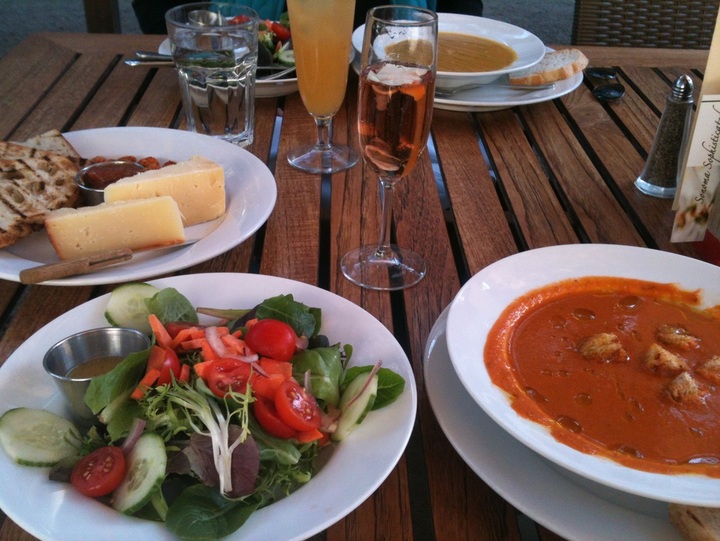
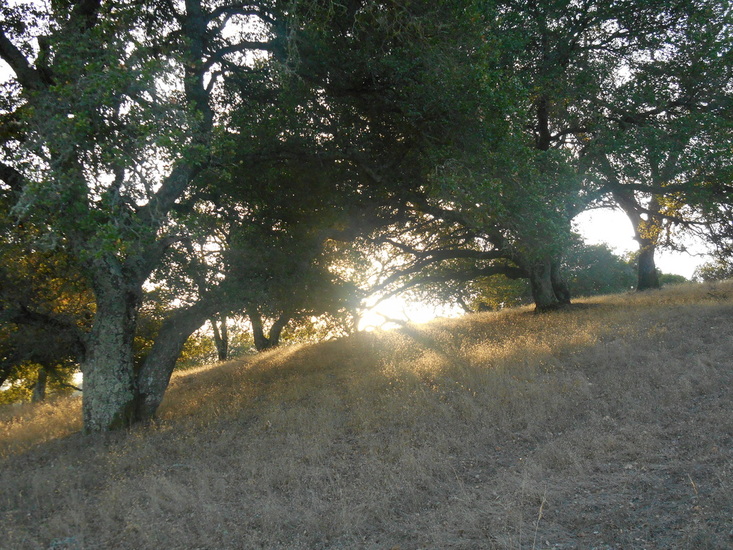
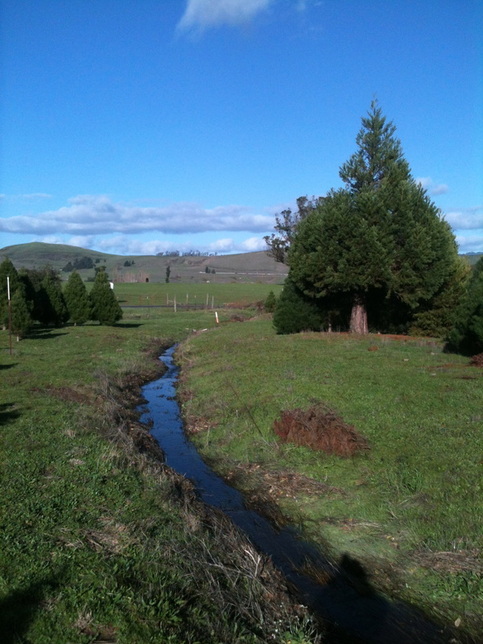
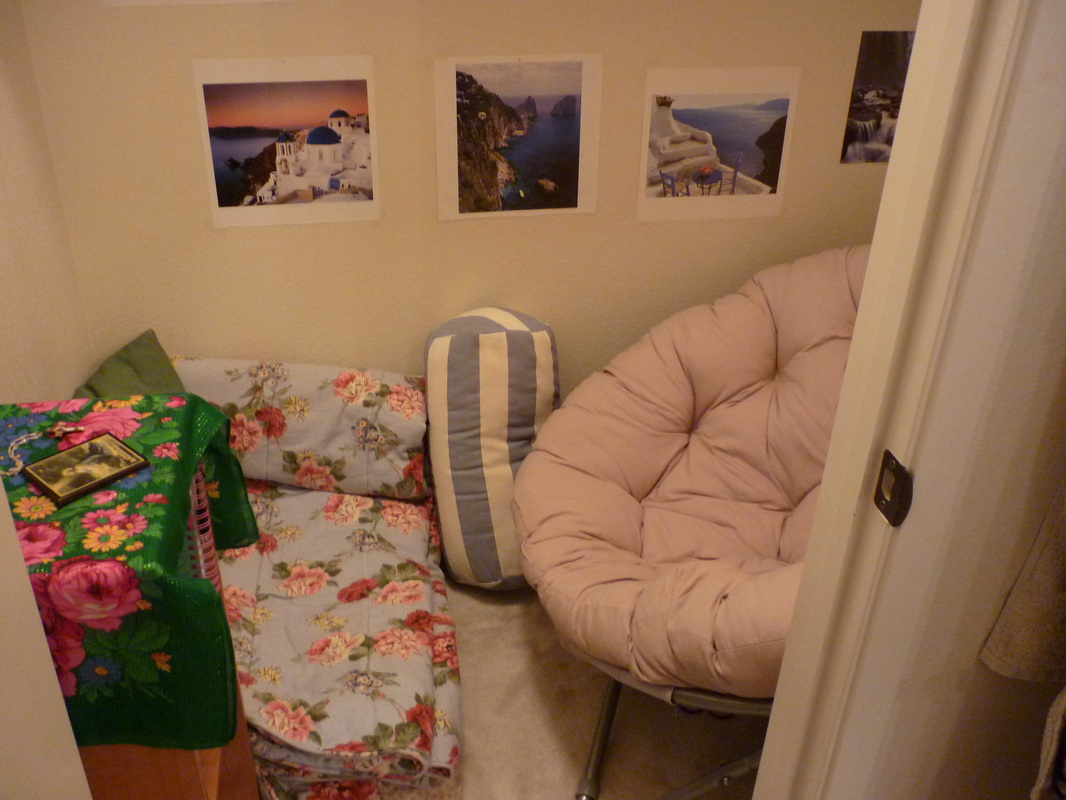

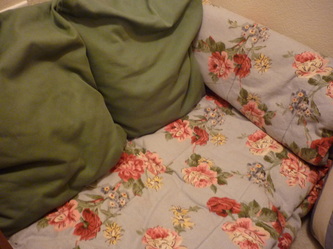
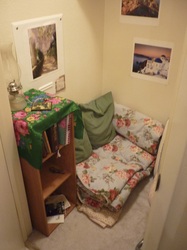
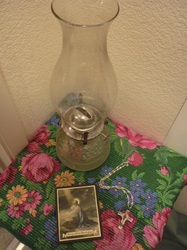
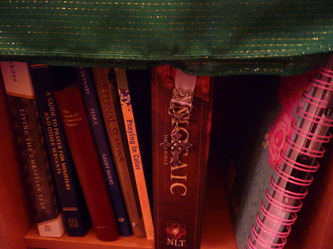
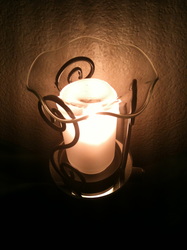
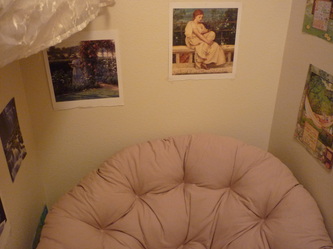
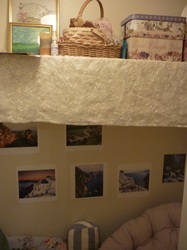
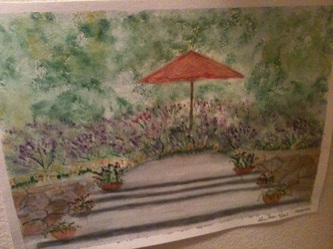
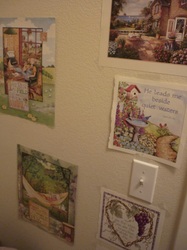
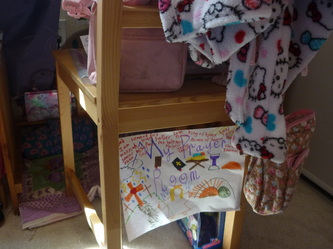
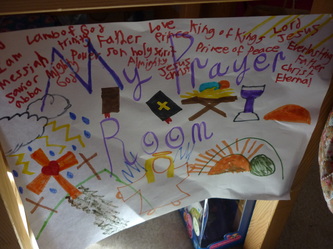
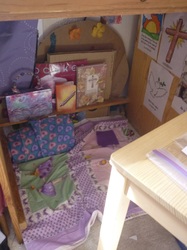
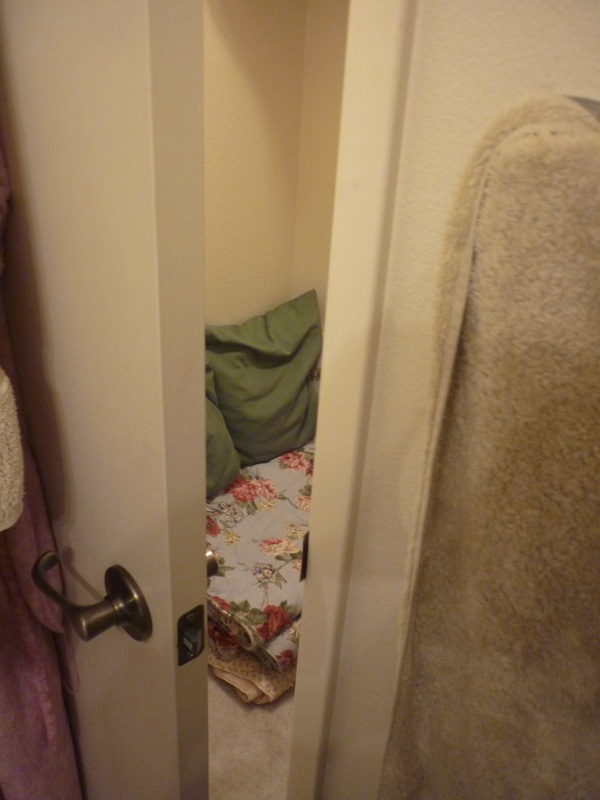
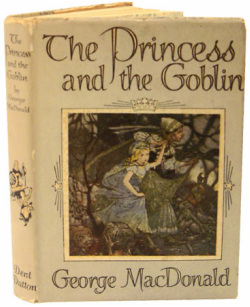
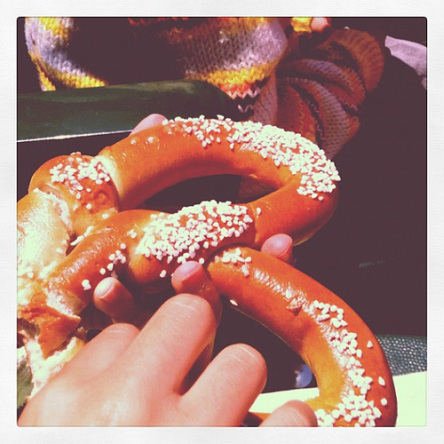
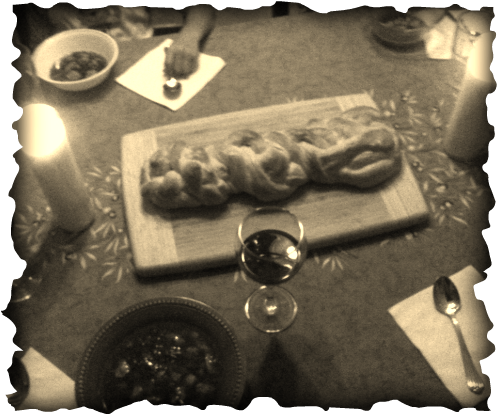
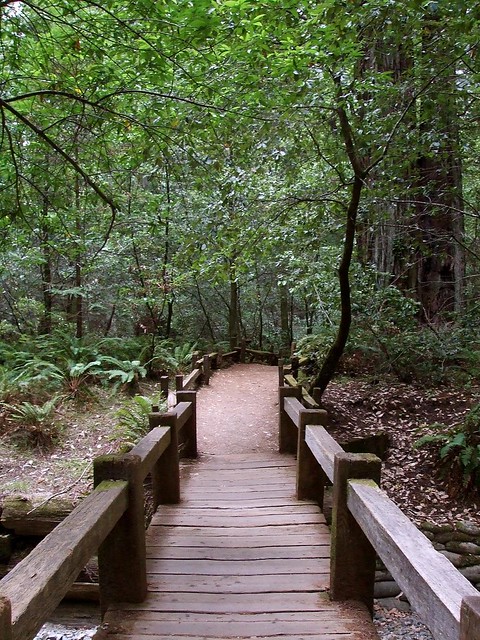
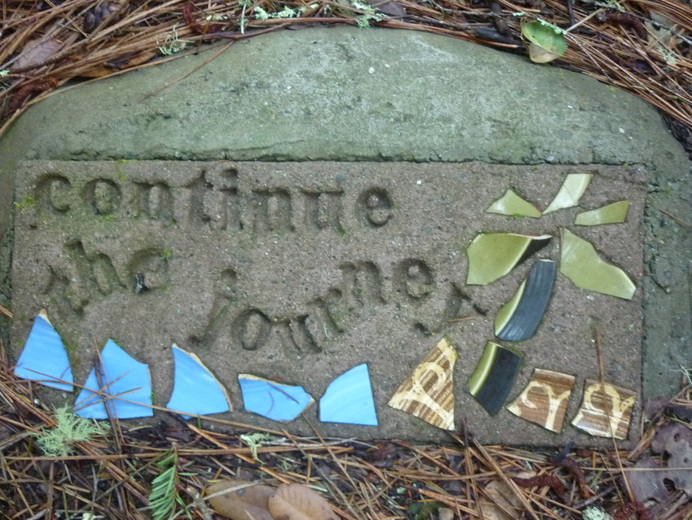
 RSS Feed
RSS Feed
